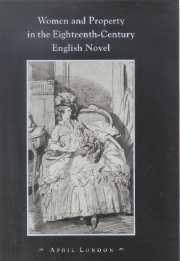Book contents
6 - Colonial narratives: Charles Wentworth and The Female American
Published online by Cambridge University Press: 14 October 2009
Summary
Within much eighteenth-century fiction, the previous chapter has suggested, the trope of reading represents the relation of gender to genre as complementary. Conservative novelists like Mackenzie in part construct a sense of the corruptions of the present by investing the past with a pastoral innocence and wholeness from which is excluded everything that presently vexes. It is not accidental that this past is shaped in accordance with a traditionally masculine literary form: by this means it acquires a narrative wholeness and explanatory power that also empowers the present narrative and its author. If pastoral figures coherence, then a novel which recapitulates its terms may through its allusive structures recover the authority of the past. As we have seen, the coherence of the form allows the novelist obliquely to assert a parallel integrity at the level of meaning. In the work of elite male writers like Mackenzie and Sterne, the possibility of translating the desire for order into its achievement, however, is arrested by the inescapable pressure of history. Both novelists represent the opposition of private desire to public history in spatial terms. Harley in the farm he establishes for Edwards and uncle Toby in his bowling green carve out a territory from which women and the change which they signify are willfully excluded. Although Cogan's novel appears a virtual “repository of commonplace middle-class sentiments”, he too finally advocates withdrawal. The interested, feminized city is rejected in favor of the country, that symbolic realm where the gentlemanly communion of the past may be recovered through denial of the present.
- Type
- Chapter
- Information
- Women and Property in the Eighteenth-Century English Novel , pp. 86 - 102Publisher: Cambridge University PressPrint publication year: 1999

